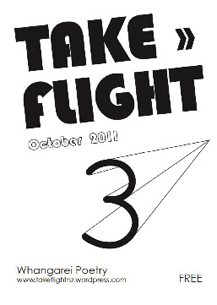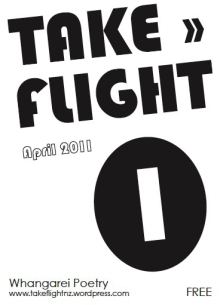Phrenology of Food
After the flood
A treasure trove had collected.
Shiny
In the chaos
Each casket
Baptized by ocean
Not yet tainted
Or corroded.
It was believed
That by passing sensitive fingers
Over each crease
In the skin,
Or over the slight swelling
Where the container
Was about to blow,
The contents
In some predictable way
Might be identified.
So tuna and rice pudding
Became anonymous,
Cling peach halves (in syrup)
Were transformed
By the alchemy of madness
From shiny aluminium,
Corned beef
Became edible.
Now
Mystics and mesmerism
Has been replaced by the glint
Of the knife and the opener
And magic
By the turn of the key
Crespuscle with Nellie
by Martin Porter
Thelonious Monk and John Coltrane, Carnegie Hall, November 1957
They were not in his canon. Dizzy,
Billie, Ray, he stomped the same boards,
Chet and Sonny too
Humph he did not meet
but that did not stop
him writing
Effortless his playing
Unique undoubtedly in genius fashion
as peculiar as his hat
Vast
Erratic
The angular notes
strike from the piano strings
like crimes
of Epistrophy:
angular dancesteps, complex,
astringent, roll like a spiked ball
John’s sax is calming. Laminated
sheets of space flow in long solos, probing
discovered corners of this difficult man. The joy is evident
while he plays, not one, not two, but
,fluent,
Many notes, all at once, or in rapid
Punctuation.
Do you feel you have to get up
And dance?
Do you feel you have to sit down
To seize the opportunity?
Well, you needn’t.
Lunch in Marco’s Kitchen With the Artists and Fine Food
In Marco’s kitchen
Dali’s Christ of St John stares down
From the wooden walls.
The wood fired stove has been burning
All morning
Mixing the sounds of sparks and effervescent knots
With the torrential rain.
The damp smell mixes
With the scent of chopped garlic cloves
Not crushed,
Like some porcini mushroom dish.
As Lina plunges pasta into her
History browned, oil encrusted pot
Marco grasps a fist of octopus
To toss with wilted spinach,
Nettles and plum toms from his back yard,
And anchovy in spiteful superheated oil. This is a
Jackson Pollack of a dish,
Or, more like, Warhol’s Marilyns,
Elegant, always the same
Never identical.
Marco hides his aproned pasta paunch
Behind the shadows of the fire, and
Lina drains spaghetti, throws it on the pan
And tips it onto three plain terracotta plates.
This is lunch
In Marco’s kitchen, with Lina
And fine food.
© Martin Porter 2007
This poem, with some addional notes, can also be found at Poetry Notes and Jottings
Floating
by Martin Porter
Gently lifting with the ocean
Sweeping slowly up the shore
She is resting on the boundary
Somewhere between air and more
Substantial fluids on her body
Offer her to turquoise light
Looking down from cloud free heavens
Looking to the Sun which might
One day drift from daily motion
Sinking into nightly rest
Glowing dim in richest crimson
Falling sea-ward in the west
Where wheeling terns once congregated
Against a foaming faded moon
Suspended in the paling sunshine
Framed by marram stubbled dune
Salt spray seasoned sea-sage sweetened
Breeze blown clean of vraic and sand
Swept branches stick black fingers upward
Urging gulls to leave the land
And forge out from their earthy havens
Venture forth without a notion
Of where to go or where to settle
Gently lifting with the ocean.
© Martin Porter 2000
(Note: the Jèrriais word vraic means seaweed, and is pronounced “rack”)
Estuarine Fogs
by Martin Porter
“These chill humors seep through our capillaries”
– Annie Dillard (Pilgrim at Tinker Creek)
Estuarine fogs
Are more bitter than
Betrayed lovers
As they seep through
The flesh
With a bone
Cracking chill
That sucks at
The marrow.
© Martin Porter 2011
Crepuscle with Nellie
Thelonious Monk and John Coltrane
Carnegie Hall
November 1957
They were not in his canon. Dizzy,
Billie, Ray, he stomped the same boards,
Chet and Sonny too
Humph he did not meet
but that did not stop
him writing
Effortless his playing
Unique undoubtedly in genius fashion
as peculiar as his hat
Vast
Erratic
The angular notes
strike from the piano strings
like crimes
of Epistrophy:
angular dancesteps, complex,
astringent, roll like a spiked ball
John’s sax is calming. Laminated
sheets of space flow in long solos, probing
discovered corners of this difficult man. The joy is evident
while he plays, not one, not two, but
,fluent,
Many notes, all at once, or in rapid
Punctuation.
Do you feel you have to get up
And dance?
Do you feel you have to sit down
To seize the opportunity?
Well, you needn’t.
© Martin Porter 2009
The night vodka got into the compost
by Martin Porter
Franz Kafka, diaries 1910-1923
Were we crazy?
We ran through the park at night
Swinging branches until our leaves fell,
Exhausted, laughing at the full Moon,
Roots free at last, tasting fresh air
For the first time, enlivening their thirst
For ground waters again.
We might have been observed…
We watch you in the day,
Little people tripping over the stones
Crushing grass in the haste to get
From where to where?
Kicking up the gravel.
Dance on, hasty fools,
What concern is it of mine?
Language and Place on the Edge: Six Poems
Vers au Vert
From centre to circumference
we drift, crossing this great expanse
to speak in tongues considered pure
by uninitiated ears.
Old words, once tentatively used
then fashioned thin as life imposed,
become an enigmatic code
charged with the trace of others’ deeds.
Deprived by empire of a waiting
embrace, language devolves, begetting
forms like those strange conventions now
spoken in parliaments of two.
Vaughan Gunson
Big Love Song #17
the golden night has locked down
the unreal day gone, thank you, for now.
the persistent thud of a million feet
stamping the ancient cobblestones.
I laughed, the outrageous image of you
seated next to a fat satyr from Hellene,
your thigh raised to the sky
tapering to a desirable end.
the threatening cataclysm
is more than a grim tattoo.
the responsible hordes hold in their hands,
for the first time, the battering-ram.
Martin Porter
The Tree at the Edge of the World
Clawing onto the cliff
Face into a salty purge
Tenacious
Stunted
It has given up flowering
Starved
On exhausted soil
Rooted in the underworld
Grasping at the air
Where the dead
Leave the living.
This is the tree
That clings to the edge
Of the Earth.
Piet Nieuwland
the altar of wind
my country is an idea born on the altar of wind
earths deep blues carried on galloping horses
lizards names etched into knotted stone archways
we drink cups of obsidian Columbian coffee laughing
in blood drenched gardens candles melt tanekaha perfumes
nikau palms dance cities of moonlight frenzies
WairoaRiverveins nourished by children throwing petals
a thousand tui chant dawn prayers
from puriri groves kneeling on aging hills
the skies cloud mask pours nipples of rain
voices of birds name the deserts language of maps
flocks of black coated women expand covering all distances
matuku moana call from blue fired clay minarets
on your breasts whole kukupa sheens breathe in
what you breathe out
you are venus bathing like an orchid
in loves memory of the moment
kahawai inhabiting a river mouth
hear pebbles hiss in your depths
your hands move in cascades of feathered leaves
mottled oyster skin a pale silk of ice trembling
your name is a gift of lavender in luxuries of passion
my heart a burial ground in the mutilated colour of dunes
as drops in the tide we evaporate into manuka fires
flying on humid rituals under tents of mirrors
Michelle Elvy
The Other Side of Better
Running up a hill
tripping upwards
falling downwards
making deals with the devil
or God — whichever works better
Radio’s on
Bush is burning
I turn it up and feel me yearning
for your devil grin and thunder heart
or God — whichever is better
As I listen and wait
I soon find myself
in a song
it’s you and me…
in tune
It’s you and me who won’t be unhappy…
in love and singing
– this is better
Bernard Heise
Cause–Effect–Cause
Sleep. I can’t.
Why?
Alcohol – much too much.
Drinking began yesterday.
Crashed car and burned house.
You left.
I destroyed
everything. Everything
destroyed. I
left you.
House burned and car crashed
yesterday. Began drinking
much too much alcohol.
Why
can’t I sleep?
NOTE: The Other Side of Better by Michelle Elvy and Cause–Effect–Cause by Bernard Heise were originally written for 52|250: A Year of Flash.
Silver Birch
by Martin Porter
The divine spider
Could not have woven
A greater or more gracious web
In such searching style.
Your natural nobility
Enshrines the metallic patina
Peeling between unrivetted plates
Weeping a little plasma.
Against the steel grey sky
You shine in subtle vanity,
Roots touching veins
Of silver buried deep.
in the cinema stalls watching
by Martin Porter
I saw that distant look in your eyes
the type that says you are concentrating but not concentrating
on the screen
and I leaned over to say
but You said
it is always the same in these movies
two people meet
they strike an unlikely partnership
it develops an unexpected problem arises
the threat is somehow overcome developing into a final happiness
they are just stories
I said
but you must suspend your disbelief
and You replied there are no such things as belief nor disbelief
only indifference
the truth of the matter is the stories are all wrong
it is not the plot that carries us
it is the distant gaze
and the absence
the voice subtly breaking
that slight tightening of the grip
these are the real cast the real plotline
without these there is no syntax no punctuation
and we all live in a screenplay of progression and loss
and we all wish we were in the cinema stalls
watching
Cool (Sharks)
(Baros, Maldives, 10th April 1998)
Black tips break the surface.
Two torpedo twins
Glide, side by side,
Looking cool.
They cruise, irrespective,
Ignoring the black-eye mackerel,
All of a crowd,
Ignoring the sting-ray,
Too big, too intentioned,
Looking cool.
If they were in America
1965
They would be cruising
In unison, among some other racers,
In Cadilacs
Looking cool.
Here, on the reef
Looking tough,
Vicious even,
Ignoring all,
They just glide, side by side,
Two torpedo twins,
Looking cool.
© Martin Porter 1998
The Ghost at the Old Lychgate, St Mary, Berkhamstead
By Martin Porter
Sometimes, when the rice has not been properly swept from the ruddy path
And the footprints from each wedding guest scar the surface with erratic scuffs,
When the cherry blossom petals, stirred into little eddies, stack like confetti on the grass
You might catch the leaf like rustle of a congregation long gone from the church,
Glimpse the shadow of a rain cloud when there is empty sky, shaped like a young girl in a pleated frock,
Always a bridesmaid…
In the heat of the May morning you can sometimes hear the sighing
Behind the sound of birdsong from the cedar, mixed with the rustling of a thrush
Scrubbing below the border hedge. The words can be just made out
By the more discerning listener, the one who hears the scraping
Of the beetle on the hoggin, or the whisper of a butterfly or moth in nervous flight,
No,
Always a butterfly…
“Never a bride”. The words are uttered in light breathy murmurs
That send ripples through the unmown grass beside the graves,
Bending blades in a melancholy breeze. The shade of oak trees
Leave their cool spots by the porch wall, where the last of the snails shelter from the morning heat.
Sometimes the sounds of marriage can be heard across the glebe land, drifting in the shimmering air,
And the more perceptive watcher, the one who sees the movement of the lichen on the tombstones
May see an apparition stand beside the church gate, drowned out by sunlight, or so the locals say,
Always a bridegroom…
© Martin Porter 2005
Marilyn does not Travel in the Back Seat of a Car
by Martin Porter
Dallas, Nov 22nd, 1963.
What fun it was,
what heart wrenching fun.
To be in the car
with all that excited noise,
cheering, the crowd straining
for a glimpse,
she loved the adulation,
even second hand.
Then all of a sudden, high drama.
How she adored those situations,
the melodrama, the ambition,
it was never real,
it was all acting,
wasn’t it?
She would never cradle his head
in her lap, as the car sped away.
She would have her place,
usurped by the other woman,
she would have her vengeance.
Of course she never fired a shot
(then again, nor did he)
but she was there, she was there
and, as sure as hell, you could feel her
straining to reach out to him,
to pluck him from her arms,
knowing that she had won,
knowing that they were in the same place.
© Martin Porter 2010
1:25000
Only slightly lost, we find the paper
Folded in an inside pocket. We are there,
Somewhere, one to twenty-five thousand,
A mote of mobile imagining.
And a trickle of blue splits the landscape.
In the orange skein
We untangle a rolling surface pressed
Flat on the map, but filled with pebble,
Outcrop, blades of grass.
On close scrutiny of the stylised code
A shrubby plantation catches the eye
With its little lollipop trees
Springing from the rough green hummocks
Of a rough green pasture.
And a trickle of blue splits the paper.
On the ground
We find no deep black names.
No red carpets are laid on our tracks.
Hidden from the ink are the implicit sheep,
The thin, abstracted cry of a curlew’s mate,
The wide airy volume of the space
The loneliness
The unprintable emptiness of being there
© Martin Porter 1998
Pasifika Queen Mab
That presses them and learns them first to bear,
Making them women of good carriage:”
Romeo and Juliet
Doping nocturnal moths, dry and empty in their brown winged shells,
The densely sweetened perfume of manuka hugs the ground
Insinuating through the dreams of wood-wasp in their paper cells.
As day gives up her irksome work the dark womb meets her need
And sultry through the musky heat the moon rests in her cup
And counts each starry glimmer as her seed.
Phosphorescent seas collapse on broken shingle spits to sing
Of lost atolls, of mattocked rings of brittle rock
And henges built of mushrooms in the close-grazed faery ring.
The husks lie shattered on the moss, the gnats have long since flown,
Attercop spins deadly wheels, there is no cricket wing,
The open rides of lovers’ hopes are long since overgrown.
She does not trust the traveller, the rider on the ridge,
She has no faith in whispered words, the secret tryst or pledge,
She will not stride the open plains or creep along the ledge.
She does not trust the stay-at-home, nor the fly-by-night,
She has no faith in song and dance, the contract or the fight,
She takes no comfort from the wren nor fears the eagle in full flight.
She is the witch of borderland, she is the sage of time,
She is the aged Sybil, midwife of the troubled mind,
She is the orphaned wanderer with no family, hound nor kine.
On a skiff of gilded darkness crafted from a lizards skin
She searches for companionship in dank ditches, rilles and brook ,
She rests, bewildered, longing for her now ancestral kin.
The heavy musk of twilight revisits her again.
In loss she finds acquaintance with the peace she craves
To drift to immolation like moths to candle flame.
“And it is yet permitted me to rend
The veil of mortal frailty, that the spirit,
Clothed in its changeless purity, may know
How soonest to accomplish the great end
For which it hath its being, and may taste
That peace which in the end all life will share.”
Queen Mab – Percy Bysshe Shelley
© Martin Porter 2008






